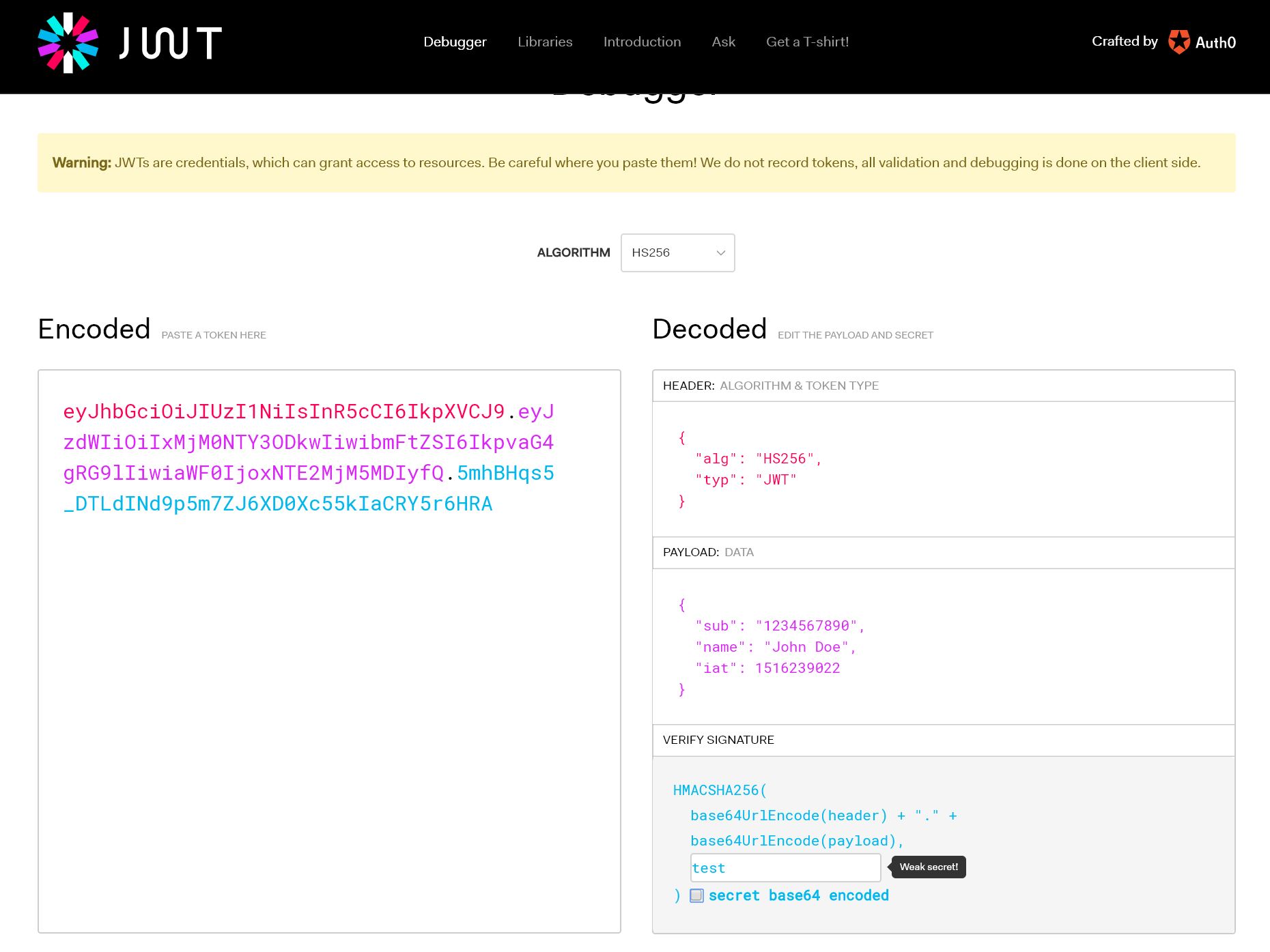11.7
I am trying to do a test to replicate the jwt.io using Progress, This example:

I am following this example :
http://billatnapier.com/security01.aspx
The code seems pretty simple, and this is what I did:
define variable oLogin as class oo.DataHelper.LoginHelper no-undo.
define variable oAuth as class oo.DataHelper.Auth2 no-undo.
define variable oHeader as class Progress.Json.ObjectModel.JsonObject no-undo.
define variable oPayload as class Progress.Json.ObjectModel.JsonObject no-undo.
define variable EncodedPayload as character no-undo.
define variable EncodedHeader as character no-undo.
//oLogin = new oo.DataHelper.LoginHelper().
oAuth = new oo.DataHelper.Auth2().
//oParser = new Progress.Json.ObjectModel.ObjectModelParser().
oHeader = new Progress.Json.ObjectModel.JsonObject().
oPayload = new Progress.Json.ObjectModel.JsonObject().
oHeader:Add('alg','HS256').
oHeader:Add('typ','JWT').
oPayload:Add('sub','1234567890').
oPayload:Add('name','John Doe').
oPayload:Add('iat', 1516239022).
EncodedHeader = string(oAuth:EncodeObject(oHeader)).
EncodedPayload = string(oAuth:EncodeObject(oPayload)).
MESSAGE EncodedHeader '.' EncodedPayload
VIEW-AS ALERT-BOX.
MESSAGE string(oAuth:DecodedText(EncodedHeader):GetJsonText()) skip string(oAuth:DecodedText(EncodedPayload):GetJsonText())
VIEW-AS ALERT-BOX.
MESSAGE string(oAuth:HMACSHA256('test',EncodedHeader + '.' + EncodedPayload))
VIEW-AS ALERT-BOX.
/**oAuth2.cls**/
METHOD PUBLIC LONGCHAR HMACSHA256( INPUT ipKeyString AS CHAR, INPUT ipEncodedString AS CHARACTER):
/*------------------------------------------------------------------------------
Purpose:
Notes:
------------------------------------------------------------------------------*/
DEFINE VARIABLE ByteArray AS "System.Byte[]" NO-UNDO.
DEFINE VARIABLE KeyArray AS "System.Byte[]" NO-UNDO.
DEFINE VARIABLE HMACByteArray AS "System.Byte[]" NO-UNDO.
DEFINE VARIABLE oHMACSHA256 AS CLASS System.Security.Cryptography.HMACSHA256 NO-UNDO.
ByteArray = System.Text.ASCIIEncoding:ASCII:GetBytes(ipEncodedString).
KeyArray = System.Text.ASCIIEncoding:ASCII:GetBytes(ipKeyString).
oHMACSHA256 = NEW System.Security.Cryptography.HMACSHA256(KeyArray).
HMACByteArray = oHMACSHA256:ComputeHash(ByteArray).
// RETURN System.Text.ASCIIEncoding:ASCII:GetString(HMACByteArray).
I need to do something like this in C#:
this.hmac2.Text = ByteToString(hashmessage);
}
public static string ByteToString(byte [] buff)
{
string sbinary="";
for (int i=0;i<buff.Length;i++)
{
sbinary+=buff[i].ToString("X2"); // hex format
}
return(sbinary);
}
But I am kind of lost here
END METHOD.
